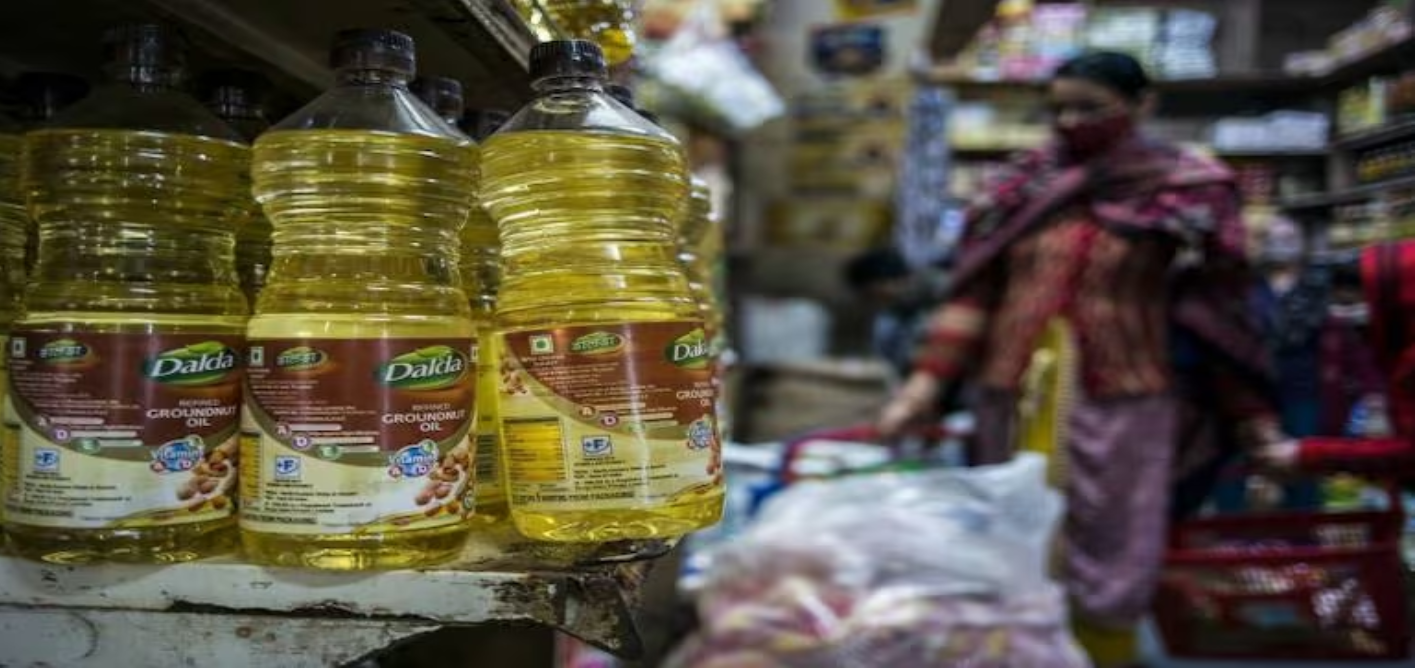Absence of vitamin A in loose edible oil raises health concerns

Health risks escalate in Bangladesh due to unsanitary loose edible oil sold in the market. Experts emphasize the urgent need for proper fortification to combat vitamin A deficiency, affecting 50% of children. Despite regulations, edible oil marketed in drums often lacks vitamin A. India’s fortification efforts serve as a model. Bangladesh’s Ministry of Industry stresses adherence to regulations for safe packaging and labeling of edible oil to protect public health.
As a result, health risks are on the rise. The use of unsanitary loose edible oil in drums sold in the market exacerbates this situation.
Experts warn that if this trend continues, achieving the Sustainable Development Goal (SDG) target 3.4 of reducing premature deaths from non-communicable diseases by one-third by 2030 will be virtually impossible.
Yet, by investing just 24 to 30 paisa extra per liter of oil, it is possible to mitigate this health risk.
A 2017 study by the icddr,b has revealed that 65% of total edible oil is marketed in drums.
Of them, 59% lack sufficient vitamin A, while 34% do not contain the required amount. Shockingly, only 7% of oil in open drums meets the minimum vitamin A levels mandated by law.
Vitamin A deficiency
Public health experts describe the deficiency of vitamin A in the human body as a silent epidemic. This deficiency contributes to the rise of various non-communicable diseases, including heart and kidney diseases, in Bangladesh, thereby increasing the risk of mortality.
The absence of vitamin A leads to various health issues, such as night vision impairment, dry eyes, corneal damage, and hindered body development. Additionally, it results in nutritional deficiencies, heightening the risk of contracting infectious and non-infectious diseases.
According to the National Micronutrient Survey 2019-20, one in two children in Bangladesh suffers from vitamin A deficiency. Furthermore, 50.9% of children aged 6 months to 59 months and 7.5% of women (not pregnant or lactating) aged 15 to 49 years are deficient in vitamin A. If this situation persists, achieving SDG Goal 3.4 by 2030 will be extremely challenging.
Dietary supplementation of vitamin A has emerged as an effective and cost-efficient measure to combat vitamin A deficiency in developing countries.
In this connection, the government enacted the Vitamin A Enrichment in Edible Oil Act in 2013 and accompanying regulations in 2015.
These laws mandate all edible oils, including soybean oil, palm oil, palm olein, and other internationally recognized vegetable edible oils, to be fortified with vitamin A at specified levels.
Nevertheless, edible oil refining companies in the country continue to market millions of tons of loose edible oil in defiance of the law.
Edible oil market
Palm oil constitutes 70% of the country’s edible oil market, followed by soybean oil at 20%, rapeseed oil at 6%, and mustard oil at 6%, according to Ministry of Commerce sources.
Of this, approximately 65% of edible oil is marketed through drums and 35% through bottles or packets.
The Bangladesh Standards and Testing Institution (BSTI) collected and tested 913 samples (520 bottles, 393 drums) from various parts of the country from 2018 to June 2021. Vitamin A was present in 87% of bottled edible oil, whereas only 52.67% of oil marketed in drums contained it, indicating that 47.33% of marketed oil lacked vitamin A.
Meanwhile, according to the Malaysian Palm Oil Council (MPOC), the country imported a total of 2.4 million metric tons of edible oil in 2019, with palm oil accounting for 1.5 million tons and soybean oil for 840,000 tons.
Palm oil imports have doubled compared to soybeans, with a 25% increase in the last 7 years.
As per the law, importing companies are responsible for adding vitamin A to the edible oil upon arrival, under the supervision of the Ministry of Industry. However, despite this obligation, vitamin A is not being added to the oil.
Unhygienic containers
Multiple sources said that the drums used for transporting edible oil are not manufactured in the country.
Instead, drums designed for storing chemicals, lubricants, or other products are repurposed for transporting edible oil, posing health hazards.
Refinery companies’ failure to affix labels and provide source identification information on these old drums makes it impossible to trace the oil’s origin, particularly the producer, thereby hindering law enforcement.
Moreover, edible oil supplied in unsanitary drums poses significant health risks.
The repeated use of non-food grade plastic drums can lead to edible oil contamination.
Furthermore, there is a risk of adulteration in open drums. Conversely, edible oil marketed in drums often lacks sufficient vitamin A.
What other countries are doing?
Under Article 18 (1) of the Constitution of Bangladesh, the state is responsible for developing and protecting public health. Ensuring the safety and quality of food is a governmental priority and is crucial for achieving the Sustainable Development Goals (SDGs) related to universal health.
In 2018, India established the Food Fortification Resource Centre, which fortified five major food items, including edible oil, with vitamins A and D.
Implementing similar measures in Bangladesh could significantly alleviate health issues related to vitamin A deficiency among low-income populations.
Govt actions
According to Ministry of Industry sources, the mandated enrichment level of vitamin A in edible oil is 15 to 30 ppm (parts per million).
This means every gram of edible oil should contain between 0.015 mg and 0.030 mg of vitamin A.
Edible oil must not be marketed without the enrichment symbol, and it should be packaged, wrapped, and labeled safely to reach consumers.
Therefore, adherence to rules and regulations related to packaging, wrapping, and labeling, including the Safe Food Act 2013, Bangladesh Standards and Testing Institutions Act 2018, and Weights and Measures Standards Act 2018, is essential in edible oil supply chains.
Edible oil must not be marketed, supplied, or sold in unsanitary, dirty, or non-food grade containers.
Dr. Sohel Reza Chowdhury from the National Heart Foundation of Bangladesh said that edible oil rich in vitamin A is very safe for public health protection.
“If vitamin A is added to edible oil in the right amount, it is possible to reduce the number of patients suffering from non-communicable diseases in the country. This will also reduce the risk of unwanted death,” the health expert said.
In response, Zakia Sultana, senior secretary of the Ministry of Industry, said that the ministry is actively addressing the issue.
Stakeholders are working towards implementing the country’s laws and regulations, overcoming various challenges in the process, she added.
Source Link: https://www.dhakatribune.com/bangladesh/health/345830/absence-of-vitamin-a-in-loose-edible-oil-raises















